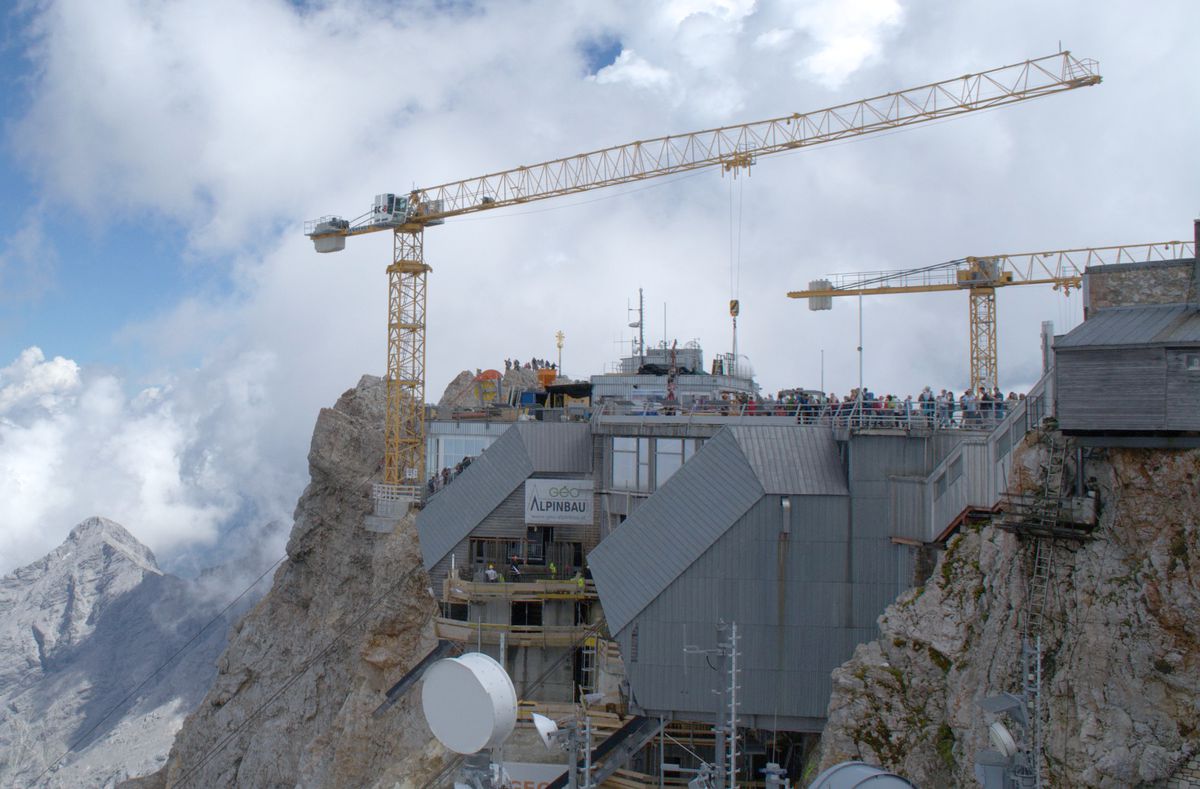Remote Project Management for Construction Crews
When the COVID-19 pandemic swept the globe in 2020, work changed for everyone in an instant. Things were even more complicated for those working in construction and other professions for which fully remote work is simply not an option.
Managers can run their teams remotely, but what challenges occur with off-site construction crews? Everyone faces difficulty switching from in-person to remote or hybrid work, but it can have its advantages.
Construction teams have some special tools at their disposal that make remote project management not only possible but cutting-edge.
Challenges of Remote Project Management
Remote work can be convenient and productive for some, but it comes with a host of challenges that can make it difficult to implement successfully. This is especially true in construction, where many jobs can’t be easily moved directly to an online platform. Most office employees are already on a computer most of the day, so having them clock in from home is not too different. Construction can’t be moved fully online like this, so a remote team must adjust to being hybrid.
Employee Engagement
One of the most common issues remote construction teams face is maintaining engagement between project managers and on-the-ground workers. Everything from tracking employee hours and performance to building relationships with employees is more challenging when remotely managing a project. People may feel disconnected from managers or supervisors in remote or hybrid workplaces.
Lack of Technological Infrastructure
This is an especially common challenge in the construction industry since it is one of the least digitized industries in the world. Teams may not have the technology needed to create an effective remote management system. Employees and managers alike will likely require some measure of training to use any new technology brought in for a hybrid project. This is by no means a deal-breaker, though. In fact, it can be a great motivator to help crews modernize their tools and technology.
Collaboration With Team Members
At many stages of the construction process, key team members must collaborate on design ideas, resource management, timeline planning and other project factors. This can be easier and harder when managing a project remotely. With the right technology, virtually collaborating with designers, stakeholders and other personnel is highly efficient and productive. However, some people may experience a learning curve when getting used to remote meetings and learning how to use digital planning documents and Cloud-based tools. This learning curve may be challenging to navigate.
Monitoring Progress
Project managers know the importance of regularly checking in on progress on-site, so some may be concerned about the logistics of doing this remotely. Luckily, it is far from impossible. Like many other challenges of remote management, though, it requires technological solutions. Overcoming these hurdles is the key to creating a strategy that enables teams to thrive and work with greater efficiency and productivity.
Advantages of a Remote Team
The challenges of remote management can seem intimidating at first, but the advantages more than make up for it. These key benefits have led experts to declare that the future of construction is hybrid, with virtually all teams working at least partially remotely sooner or later. Beyond this industry, the popularity of home-based work is even greater. Some of the largest companies in the U.S. have announced they will permit it permanently. The benefits of a good project management strategy can significantly strengthen construction teams.
Maximum Flexibility
Remote work offers total flexibility to work wherever and whenever is most productive. Project managers can use a home office, a favorite coffee shop, a coworking space or wherever else suits their needs. They can use the computer they desire and control their own internet quality and accessibility. If they want to check in on the progress of projects on-site, they can pull up live video feeds and watch construction in real-time without even getting in their car.
Fitting personal and work life together can be much easier when working remotely, which is highly appealing for many people.
Greater Connectivity
Remote teams can be more connected than those fully in-person due to the ease of digital communication. Once the initial switch to off-site communication methods has been made and everyone is used to it, managers may find themselves talking to their employees and teammates more frequently simply because everyone is so accessible online.
Geographic Freedom
Project managers who work remotely have greater freedom to take on new projects because they aren’t as limited by geographic factors as those in person. People with an effective remote management style can oversee multiple projects at once or choose exciting ones to work on, even if they are farther away than would be feasible for an in-person job. This also means you can collaborate with off-site consultants or designers, as well.
Tools for Effective Remote Management
Effective remote project management is possible thanks to technological advances made over recent years. There have been several exciting innovations in construction technology that enable teams worldwide to revolutionize how they run projects and interact with site workers. These new technologies go well beyond faster videoconferencing, bringing cutting-edge solutions to off-site construction crews.
Drones
Drones are some of the most popular new technologies in construction. These flying robots have many uses in construction in virtually every stage of the project life cycle. They are great for conducting initial site surveys, which can be performed autonomously in a matter of hours and turn up rapid, accurate, detailed results. During the building process, drones are helpful for site security and safety monitoring for workers, both of which help keep everyone safe around the clock.
Stakeholders will appreciate a project manager with a drone on their team because they can capture fantastic footage far better than most photographers could from the ground.
The Cloud
Digitization is essential for construction crews who want to thrive under remote management. The good news is that digitization can be extremely helpful for your team, enabling greater efficiency, productivity, connectivity and security. The cloud is a great place to start since it allows you to easily share documents online in real-time. This capability opens the door for easy time tracking, swift payroll and record management, and convenient access to project documents from anywhere.
AR and VR
Among the more cutting-edge innovations in construction of late are augmented reality (AR) and virtual reality (VR). These two technologies are truly blurring the lines between the virtual and physical worlds and could one day completely change the way we think of remote work.
AR, where virtual assets are projected onto physical objects, has a few great benefits for construction. For example, site workers can have an AR projection show them exactly how to fix a piece of equipment faster and more accurately than manually. Similarly, project managers can interact with AR or VR models of projects to simulate the experience of being on-site.
Cybersecurity for Remote Teams
One important consideration to remember with remote work is cybersecurity. It has always been important, but it has become significantly more critical since the onset of COVID-19. This isn’t a coincidence. When the pandemic forced millions of people to suddenly start working from home, many employers weren’t prepared for the digital vulnerabilities that widespread remote employment would create.
In the traditional in-person workplace, everyone is protected by secure employer-provided internet access and professionally managed IT infrastructure. This is not the case with remote work, and it is causing a surge in cyberattacks as hackers take advantage of weak personal cybersecurity practices.
As a result, you will need to take steps to ensure your team is safe and your remote tools are protected by strong cybersecurity measures. A good place to start is with your own internet and device security. As the project manager, all your team’s digital documents and information will be coming through your channels. Any weaknesses in your defenses are a vulnerability to your entire team.
Ensure the computer you use for work has updated, reliable anti-virus software installed to prevent malware attacks. Verify that your internet connection is private and has a strong password. You should also check how many devices are connected to your Wi-Fi network so you can ensure no one has accessed your internet connection without you knowing.
Additionally, be cautious about opening questionable emails in your inbox because they could be phishing attacks. If anything about the sender, message sample or topic looks suspicious, don’t open the email. Phishing attacks have quickly become the most common type of cyberattack since the pandemic began by hiding viruses, malware and spyware in seemingly innocent messages.
Cybersecurity is especially important in construction because a data breach, ransomware incident or another attack can leave your team crippled in the middle of potentially dangerous work. Cybersecurity is even more imperative if you use IoT devices or automated AI equipment on-site since any device connected to the internet can be hacked. This even applies to smart safety devices and drones.
Hacks and breaches are preventable, though. If you take the proper steps to secure your team’s network and educate your crew on good cybersecurity practices, you should be able to work safely and confidently.
The Future of Construction
The construction industry is heading toward an exciting future packed with technological innovations. Crews can now thrive with remote project management, thanks to the capabilities of advancements like drones, AR and cloud connectivity. A secure strategy ensures your team can help build the future of construction through remote work.





























